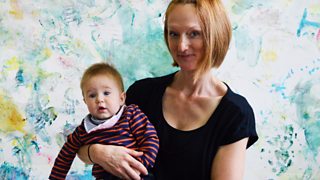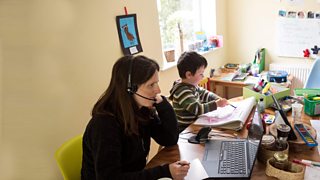Is intensive parenting too invasive?
In the last 50 years, parenting styles have changed dramatically, almost going from a ‘hands off’ approach to a very present ‘hands on’ regime. Neuroscience has opened up a target-led approach to child-rearing, and a child’s education has subsequently become a source of anxiety for parents, heightened by the competitive global jobs market.
In Modern Parenting, Professor of Sociology, Tina Miller talks to a range of experts to examine what impact intensive parenting has had on the parents, their children and on rising socio-economic inequality.

How the emphasis of parenting has changed over time
Professor Miller recalls that those involved in her first parenting research studies in the mid-1990s were preoccupied “about their babies reaching milestones like teething and crawling, and then producing the sociable child.” Miller says the emphasis for today’s parents has shifted to “ensuring children are busy and productive.”
-
![]()
Analysis: Modern Parenting
More time and money is being spent on children than ever before. What does this trend tell us about what society now values?
This anecdotal knowledge is underscored by ‘time diary’ data from the 1960s to the present, studied by Rebecca Ryan, Associate Professor in the Department of Psychology at Georgetown University. It shows a steep rise in the number of minutes per day that parents spend with their children – a doubling of time in the case of the mother. This time is spent with activities around ‘concerted enrichment’, interacting with the child, reading a book with them, telling stories, playing games etc.
Neuroscience and destiny
To help explain the change in parenting style, Professor Miller cites the rise of ‘neuroparenting’ from the 1990s onwards. Neuroparenting is “a way of thinking about parenting which claims certainty, and that we know how a child ought to be raised based on developments in brain science.” Parenting is now regarded as “a key determinant in brain development and thus the child’s future,” she says.
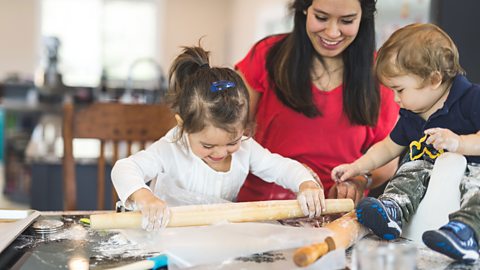
Were the ‘good old days’ really better?
Michael Morpurgo reflects on the damage being caused to children by stress and anxiety.
Too much too young?
“Babies were once seen as being quite simple in the past, and now they are being seen as really complicated,” observes Dr Jan Macvarish, author of Neuroparenting: The Expert Invasion of Family Life. MacVarish is concerned that neuroparenting is a “very prescribed, regimented way of doing babies”, giving examples of targets set for how many words a child speaks and hears.
Babies are brought up in all kinds of different ways in different places and at different times - generally speaking humans do turn out to be remarkably similar to one another.Dr Jan Macvarish, author of Neuroparenting: The Expert Invasion of Family Life
While Dr Macvarish concedes that “very specific aspects of neurological development needs to happen at a certain stage”, she adds: “babies are brought up in all kinds of different ways in different places and at different times - generally speaking humans do turn out to be remarkably similar to one another.”
The responsibility parents feel for their child’s development can be magnified by a neuroscientific approach. Macvarish gives the example of a grizzly baby. Once dismissed as the luck of the draw, “now mothers try and find an explanation from their own temperament,” she says.
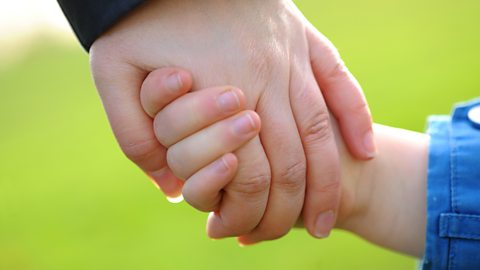
How much does parent-baby attachment affect your adult life?
The research on attachment between parents and their babies is being misinterpreted.
Education, education, education
The responsibility that parents now feel for the life outcomes of their children is compounded by government.
Specialist in parenting and education at the University of Luxembourg, Frederick de Moll says that, at all levels, education policy has emphasised parental responsibility. This is compounded by the fact that the “middle classes are increasingly afraid of downward mobility.”
Parents are now interacting with teachers more than ever before, especially over grades. “It has become the parent’s responsibility if your child fails in the education system or not,” says de Moll, “it’s more the parent’s failure than it is the school’s.”
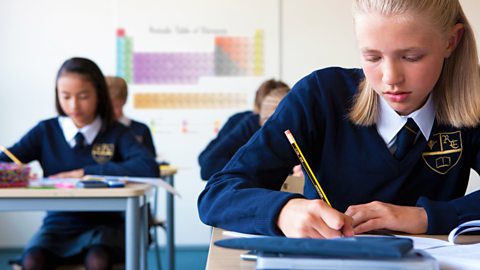
How cut-price private schools are offering education
If you cut out the frills, can you get a quality education at a budget price?
Eyes on the prize
Experts agree that the goal of a university or college education makes sense, even if there are concerns around how that goal is achieved. Rebecca Ryan notes that “the value of college degrees, in terms of returns in the marketplace, are rising, as the value of semi-skilled or unskilled labour is flat or falling.” Meanwhile, Professor of Economics at Northwestern University and author of Love, Money and Parenting: How Economics Explains The Way We Raise Our Kids, Matthias Doepke remarks that “the change in parenting style is a completely reasonable response to the changed economic environment.”
The change in parenting style is a completely reasonable response to the changed economic environment.Matthias Doepke, Professor of Economics at Northwestern University
The hunger for academic achievement has expanded the tutoring sector, after-school enrichment classes and cramming schools.
“You see countries with intensive parenting like the US having a very large market like that,” says Matthias Doepke, “and once you have a market, people invest in it and try to keep it in place.”

Equality of aspiration, inequality of opportunity
Frederick de Moll isolated the concerns of middle-class parents, but statistics show that participation in enrichment activities and the perception that, as Rebecca Ryan puts it, “the world is a more competitive place and you need more credentials than ever before to succeed in it” is shared across socio-economic groups.
Matthias Doepke acknowledges that “more intensive parents do better” when it comes to their children’s grades and prospects, but notes that, in the last two decades, spending on extra-curricular activities has doubled in families in the top quarter of the income bracket while it has remained relatively static within less well-off families. Rebecca Ryan adds that the gap between test scores and economic achievement between those at either end of the income scale has widened by 50% in the US over the last 50 years. “This could be, in part, because of rising income inequality itself, but it could also come from these differences in parental investments.”

How to encourage creativity in your child
Are we bringing up children creative enough for the future they face?
Failure is not an option: the mental health fallout
Striving for better educational outcomes has an actual price-tag, but it can also have an emotional cost for all concerned.

“There’s lots of anecdotal evidence that parents, particularly mums, are feeling very overwhelmed by the pressure [of doing enrichment activities] alongside, in many cases, a full-time job,” says Rebecca Ryan. Meanwhile, “any lack of success of any kind, for example, not getting a great grade - any of the normal things that kids should go through - are perceived as great failures.”
Children are understandably anxious about letting their parents down, and they might be letting themselves down too.
“The ability to make your own independent choices,” says Matthias Doepke, “and discover what you really want to do is lost in this process.”
The Lockdown Kids
With the necessity of home-schooling, lockdown could, as Professor Miller puts it “turbo-charge” intensive parenting. Rebecca Ryan says there’s a chance that the opposite could happen.
“It’s possible quarantine could remind parents that kids can look after themselves, get things done and structure their time without them [the parents] making sure it happens…we’ll see.”
More from Radio 4
-
![]()
Analysis: Modern Parenting
More time and money is being spent on children than ever before. What does this trend tell us about what society now values?
-
![]()
The Art of Raising a Child
What makes an individual creative? Can you make creativity a life skill, and where might such a skill take a child in later life?
-
![]()
Money tips for parents on lockdown
Tips and advice from experts to help you make the most of your money on lockdown.
-
![]()
So you think you know more about grammar than your kids?
Test your grammar knowledge with our 10-point quiz, based on Year 6 SATs-style questions.

